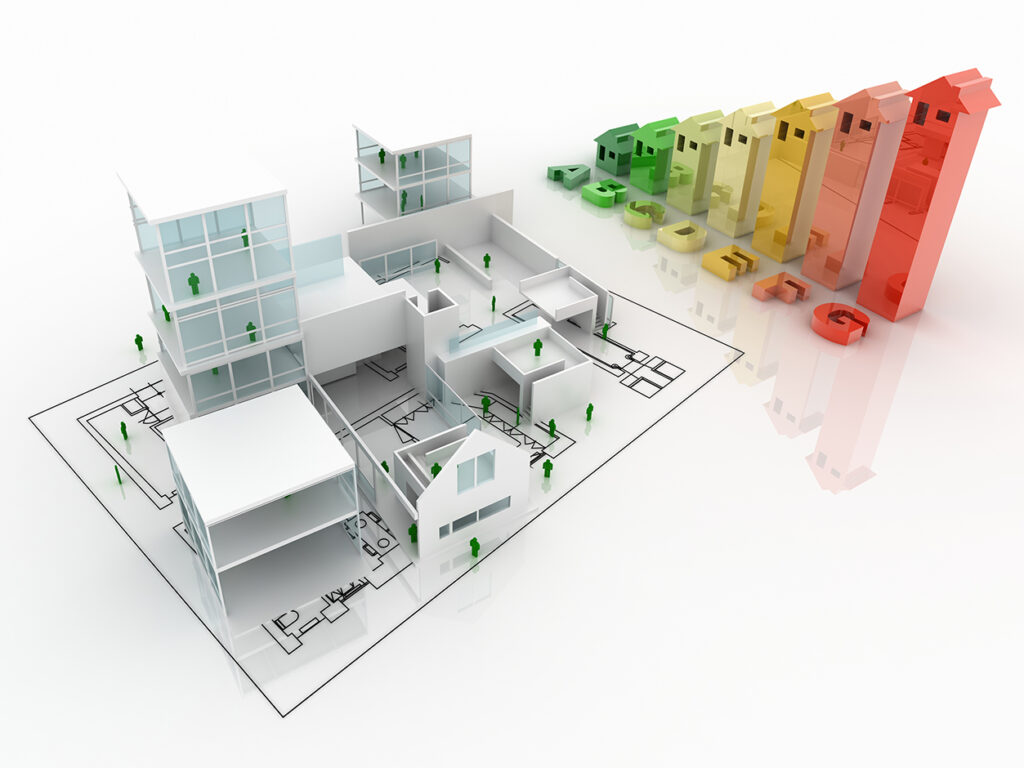THE ROLE OF BUILDING SERVICES IN ENERGY EFFICIENCY
The Role of Building Services in Energy Efficiency
Energy efficiency has become a paramount concern in today’s world, driven by environmental concerns, rising energy costs, and the need for sustainable development. Buildings are significant contributors to energy consumption, and as such, optimizing their energy performance has become a top priority. One critical aspect of achieving energy efficiency in buildings is the role of building services. In this article, we will explore the various facets of how building services play a pivotal role in enhancing energy efficiency.
1. HVAC Systems: The Heart of Comfort and Efficiency
Heating, Ventilation, and Air Conditioning (HVAC) systems are integral to maintaining indoor comfort while also influencing a building’s energy performance. Modern HVAC systems employ advanced technologies such as variable speed drives, smart thermostats, and energy-efficient components to reduce energy consumption. Properly designed and maintained HVAC systems can significantly lower a building’s energy usage by providing precise climate control and optimized energy utilization.
2. Lighting Solutions: Illuminating Efficiency
Lighting accounts for a significant portion of a building’s energy consumption. Building services encompass not only the choice of energy-efficient lighting fixtures but also smart lighting control systems. These systems use sensors and timers to adjust lighting levels based on occupancy and natural light availability, ensuring lights are only on when needed. The integration of LED technology and daylight harvesting can lead to substantial energy savings without compromising lighting quality.
3. Building Automation Systems: The Brains Behind Efficiency
Building automation systems (BAS) are the brains behind energy efficiency in modern buildings. BAS monitors and controls various building services, optimizing their operation for maximum energy efficiency. Through data analysis and real-time adjustments, BAS can regulate HVAC, lighting, and other systems, responding to changing conditions and occupancy patterns. This level of automation ensures that energy is not wasted on unnecessary operations.
4. Insulation and Building Envelope: Keeping Energy In
A well-insulated building envelope is crucial for energy efficiency. Building services extend to selecting the right insulation materials and ensuring proper sealing of gaps and cracks. By minimizing heat transfer through walls, roofs, and windows, building services play a pivotal role in reducing heating and cooling loads. This, in turn, results in lower energy consumption for maintaining comfortable indoor temperatures.
5. Renewable Energy Integration: Harnessing Sustainable Power
Building services can facilitate the integration of renewable energy sources such as solar panels and wind turbines. These technologies generate clean, sustainable energy that can offset a significant portion of a building’s energy demand. Building services professionals design and install these systems, ensuring they are seamlessly integrated into the building’s energy grid for maximum efficiency.
6. Energy Management and Monitoring: Data-Driven Efficiency
Efficient energy management relies on data analysis and continuous monitoring. Building services include the installation of energy meters and monitoring systems that track energy consumption in real-time. This data is invaluable for identifying energy-saving opportunities, optimizing operations, and making informed decisions to enhance energy efficiency over time.
7. Sustainable Building Practices: A Holistic Approach
Building services are not limited to the operation of systems within a building; they also encompass sustainable building practices during construction and renovation. Materials selection, waste management, and eco-friendly construction techniques are all part of building services’ broader scope. Sustainable building practices reduce the environmental impact and contribute to long-term energy efficiency.
Conclusion
In the pursuit of energy efficiency, building services play a multi-faceted and indispensable role. From the efficient operation of HVAC systems and lighting to the integration of renewable energy sources and sustainable building practices, building services professionals are at the forefront of creating more energy-efficient and environmentally friendly buildings. By prioritizing energy efficiency through building services, we can mitigate the environmental impact of buildings and move towards a more sustainable and energy-conscious future.


